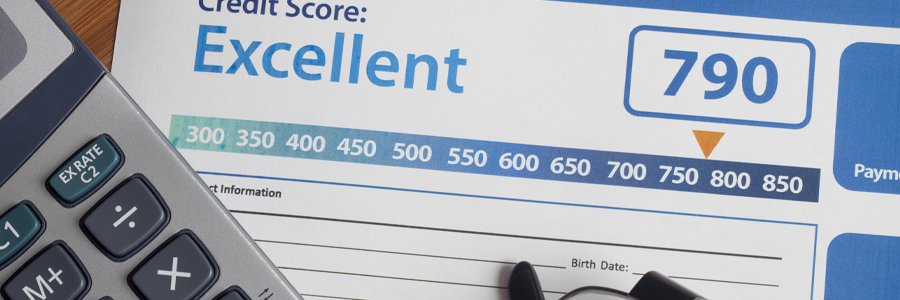CREDIT CARD CONUNDRUM

NO CREDIT CARD? NO CREDIT SCORE
Establishing good credit is the foundation of a strong financial plan. It’s the universal indicator of your ability to handle debt. But according to FICO (Fair Isaac Corporation), the most commonly-used credit scoring company, one in three adults under 30 has no score at all. If your peers do carry plastic, it’s usually a debit or prepaid card. This is especially true of people age 18-24. But studies show that as you get older and more affluent, your use of credit cards rises. 83% of older millennials (age 25-34) use them. And their average balance was almost double that of their younger counterparts. In fact, last year, credit cards outpaced student loans as millennials’ largest source of debt.

CUE THE PERKS
Credit is now – or will soon be – part of your financial life. And to answer that growing need, companies are offering cards with millennial-centric benefits and rewards. These may include $0 annual fees, bonus money after spending a certain amount, points toward free travel, and, in this competitive industry, sometimes you can get all of the above! There’s an Uber card, Amazon Prime card, slews of airline cards. And of course, in deference to your pleasure-loving lifestyle, there are cards for restaurant-lovers, clothes-hounds, car freaks and more. You can compare all the perks at www.thebalance.com/best-credit-cards-for-millennials. Be sure to compare fees and costs, too.

CREDIT-BUILDING BENEFITS
When used carefully, a credit card is a powerful financial tool that can put you in the best light, and save you money. Shopping for a new car? Thinking of buying a condo? Applying for a new job? All of these and more are affected by your credit score. It’s what every lender checks first, to see how well you have handled repaying debts in the past. Opening a credit card, and using it responsibly, is one of the best ways to establish and build your credit-worthiness. A high credit score will earn you better interest rates on loans. A low credit score is a red flag that costs you more, and may even have you turned away from a car lease, job or apartment rental.
Using a debit card will not help you build a credit history. Neither will a prepaid card. Or cash. Credit cards also offer better protection against theft. You’re only responsible for $50 of fraudulent charges, whereas debit card crime can cost you up to $500.

GETTING APPROVED
Until recently, college kids simply had to walk around campus, and be instantly approved for credit cards (plus get free t-shirts for doing it.) That kind of marketing is now illegal, so millennials are limited in ways to get access to credit. If you’re just starting your career, or have little or no credit history, getting approved can be challenging. Here are some steps to take:
- Get a copy of your credit report. It’s free, and it’s imperative to know what’s listed there. You will see all your loans, your payment history, any missed or late payments, and balances. You’ll see whether you’ve been a victim of fraudulent activity, identity theft, or mistaken reporting by vendors or lenders, so you can take steps to correct the record. Order your free copy at www.annualcreditreport.com or www.ftc.gov/faq/consumer-protection/get-my-free-credit-report
- Don’t have a great credit rating? Consider applying for a card for people with limited histories, and low (or bad) credit scores. Find a list of options and requirements at www.wallethub.com/credit-cards/bad-credit. Check your local credit union too, as they tend to be more flexible with their requirements.
- A secured card is a smart option if you’re just starting your financial life. You deposit a certain amount of money into the account. That serves as your line of credit. You then use the card to charge purchases up to that line. As you pay your monthly bill, the credit balance is adjusted. If you decide to close your account you are paid back whatever cash is still in reserve. Unlike a prepaid or debit card, secured cards help you build a credit history. But they’re only meant as a stepping stone. After a year, switch to a regular card with better benefits and rewards.

BUILD A BETTER CREDIT SCORE
Bad credit costs you big time. For example, on a $20,000 car loan, someone with a low credit score could ultimately pay over $5,000 more in interest than someone with a high score. Large loans like home mortgages can incur extra interest costs in the five figures.
Here are some ways to boost your credit profile:
- Pay in full every month – you don’t have to carry a balance to build credit scores. And paying in full saves you a ton in interest charges.
- Pay on time – even one missed payment can drop your score by hundreds of points, and will take months or years to go away.
- If you do have a late payment, contact the lender and ask them to remove it from your credit score. If you have a solid history of on-time payments, they may make a ‘goodwill adjustment.’
- Only use a small percentage of your available credit – aim for 25%. The larger the amount of your credit line that you use, the lower your score. So keep balances down.
- A long history of credit improves your score. So try to keep your oldest credit card active.
- Vary the credit you use – add a small auto loan, use department store and gas cards. Handling different kinds of credit reflects well on your rating. Just be vigilant about not charging more than you can pay in full each month.
- Try not to use credit too much, especially if you have student loan or auto loan debt.
- Set up automatic payments for credit cards, and your other bills.
